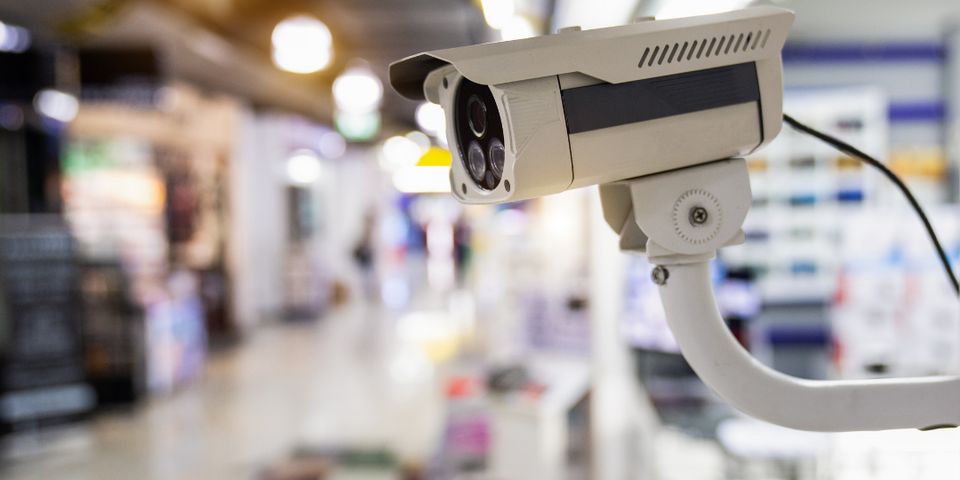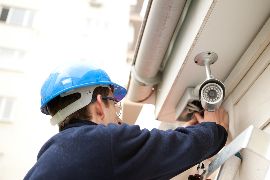
For business owners, security cameras are an indispensable tool for protecting their property, employees, and customers. In cases of criminal activity or determining liability, they provide valuable, reliable, and unbiased testimony. That's why it is important to get the best value from your security system. Keep reading to learn the answers to frequently asked questions about security cameras.
Questions About Security Cameras, Answered
How far can cameras see?
Focal length, which is measured in millimeters (mm), determines a camera's width and depth of view. A low focal length, such as 2.8mm, provides a wide horizontal field of view of up to 90 degrees but cannot focus clearly on objects more than 40 feet away. For this reason, low focal length lenses tend to work better in confined spaces such as a small office lobby.
Higher focal lengths, like 6 mm, can focus further but have a narrow, 45-degree field of view. These lenses work well at capturing details from a distance, like a license plate number from across a parking lot. But it may require more cameras to thoroughly cover a large area. Varifocal lenses provide the option of automatically or manually changing the focal length to zoom in on objects. These cameras tend to be more expensive than fixed lens varieties.
Where should cameras be placed?

Ideally, all areas of your business should be covered by security cameras. However, factors such as budget or privacy concerns can make this impractical. Focusing on high-risk and sensitive areas can help determine where to prioritize coverage.
Consider placing high focal length cameras at the entrance and exit points to monitor access to your business. Covering cash registers, safes, and inventory storage areas with low focal length cameras can help discourage theft, while exterior cameras can help protect against vandalism or other unlawful activities around your establishment.
How long is the video kept?
Security camera systems store data on a hard drive called a digital video recorder (DVR). Depending on if the DVR is kept on-site or hosted on an external server, it can record between one week and one month's worth of video. Most systems will automatically begin recording over old video once its memory is full. Motion-activated cameras can help save DVR space by recording only when there is movement in the field of view.
Do the cameras work without power?
Security cameras require electricity to function. To ensure your business is protected during a power outage, consider a security camera system equipped with a backup battery and removable storage that enables them to continue recording even when the electricity is cut.
If you need the protection and peace of mind of security cameras in your business, contact Intellicom in Kearney, NE. These professionals have more than two decades of experience in developing customized solutions for small and medium-sized businesses. To speak with an IT professional today, call them at (308) 237-0684 or visit their website for more information.
About the Business
Have a question? Ask the experts!
Send your question

